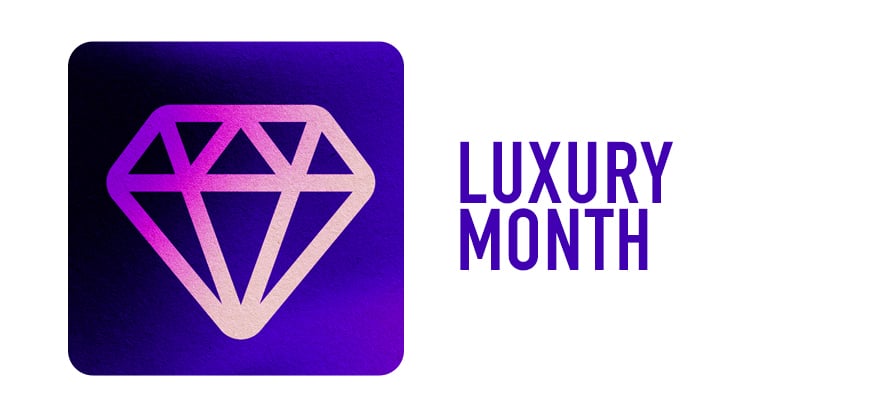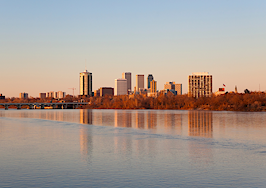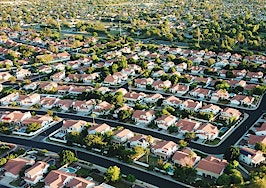 October is Luxury Month on Inman. Inman Handbooks offer deep dives on luxury marketing and agent branding, luxury staging, referrals, and more. We’re thinking about what luxury means now, examining how the pandemic is reshaping the needs of luxury buyers, and talking to top luxury agents, all month long.
October is Luxury Month on Inman. Inman Handbooks offer deep dives on luxury marketing and agent branding, luxury staging, referrals, and more. We’re thinking about what luxury means now, examining how the pandemic is reshaping the needs of luxury buyers, and talking to top luxury agents, all month long.
Engel & Völkers, an international real estate brand based in Germany, is a name that is synonymous with luxury. But what does luxury mean during a pandemic? Inman caught up with Anthony Hitt, CEO of Engel & Völkers Americas, to pick his brain on how luxury has changed, the consumer trends that are here to stay, and why high-end properties are moving like hotcakes.
Inman: You’ve been CEO since 2014. What do you see as your job and how has that job changed during the pandemic?
Anthony Hitt: My job is basically to take the pulse of the consumer, take the pulse of the advisors in our brand and our franchisees, and try to figure out what are the best things that we can do to help them build their businesses.
Of course, during COVID things are changing more rapidly. We were used to having a lot of changes in our industry of and the potential of disruption, but the reality is there’s usually a stable normal. Right now we’re experiencing new normals on a pretty regular basis.
What sort of trends are you seeing, and how have those accelerated?
In this industry, we’re talking about technology, but the reality is we’re pretty slow in adopting new ideas — not just Engel & Völkers, but all brands. What we’ve seen during this pandemic is that we’ve been forced to adopt technology at a rapid pace.
In the last seven months, we’ve probably advanced in technology seven years. There’s a lot of things that we’re doing today that I think we all knew we could do, but we just didn’t do it.
What’s really changed from a standpoint of the consumer and real estate professionals is the hunger to actually use it. Everyone is very open-minded right now to change. Everyone is very open to learning more and and trying to advance how they do what they do in a way that serves their clients and serves them.
One thing I’m certain of is a lot of these habits that we’ve taken on because of COVID, some of them will go back to the old normal, but a lot of these habits are here to stay. And technology is definitely one of those that’s here to stay.
Any particular aspects of technology that you think are here to stay?
The idea that you can have a meeting face-to-face with your clients from a property where you can go in and do a showing without the client actually being there. You can have a lot of the conversations that you would have about pricing or about strategy that we might have done in a telephone call in the past, or we maybe actually would meet each other in a shop or a residence. We’re much more comfortable with the idea of being on camera and having those kinds of conversations.
Obviously the virtual showing, whatever that means, whether it’s using 3D technology to showcase a property, or live streaming an open house or showing. Those are trends that I don’t think are going to go anywhere.
People value their time. If there’s something that their advisor can do to reduce friction in the transaction or reduce friction in the viewing process, they’re going to. Why not let your advisor go out and show you properties virtually before you decide which ones you’re actually going to travel to and walk through yourself?
Even if you were an essential service in some areas, or not in other areas, you were forced into doing business this way or you weren’t doing business. I think it started there. But then I think very quickly, we thought, ‘Wait a minute, this is actually kind of nice. I can be more effective. I can reduce my own time and my customer likes it.’
So that’s given us the extra momentum to keep on moving in the right direction.
Is there anything you think won’t stick around about the new way of doing business?
I think there will be a hybrid. As much as I think [virtual meetings and showings] will stay and will be a bigger part of what we’re doing, I think there’s also a real desire to be able to get back out there and shake hands or be in the same space or have a coffee and discuss needs or be in someone’s living room.
It’s really finding that balance between using technology to be efficient and effective, but not as a replacement necessarily for that personal connection when there is a possibility of that. It’s not one or the other.
Engel & Völkers is an international brand. I’m assuming luxury means different things depending on what country you’re in or even what region you’re in. What does it mean for the U.S.?
I actually think luxury is even more personal than that. I think luxury is different to every person.
We know a lot of times price point is what we use as our determination of luxury in this industry. But the fact of the matter is, I live in Manhattan. I have a small apartment here and for me having another bedroom to use as a home office right now, it could be luxury. But for someone else it’s a completely different definition.
I think it’s a misnomer that luxury means you’re on the top floor of a high rise in a European capital. That might be luxury to some, but for others it’s just having a larger backyard or an additional bathroom or a basement or whatever. It’s whatever makes that lifestyle pleasurable for you.
Your price point is a part of it, but ultimately luxury is defined by the individual. We help people understand their definition of luxury and then we try to help them find that when it comes to a living space.
As a brand you focus on luxury, so what does that mean when luxury changes by the individual?
It’s about bespoke service. If you’re looking to buy a home or sell a home or move, what we want to do is understand your needs. What is it that is a must-have for you? What’s the dream situation? What’s the life you want to live outside of your front door? What’s the life you want to live inside?
It’s really about the experience more than it is about a particular piece of property. Ultimately luxury does work at virtually every price point. If we’re trying to define it based on price point, I like to say that we’re usually working in the median and above price points.
Has what people consider luxury changed during the pandemic?
I think priorities have shifted to some extent. If luxury is to be able to have whatever it is you desire in a perfect scenario, absolutely.
There are people who have lived in major metropolitan areas, like New York City, for instance, who have said, ‘Wait a minute, I want to be able to get out of the city. I want to live in a space that has a yard. I want to have extra room so I can be working and my spouse can be working and my kids can be on Zoom doing their schoolwork and not all be in the same space.’
And so we’re seeing a little bit of people migrating to those more rural areas or areas that maybe in the past would be considered to be second-home areas. I think we’re looking now at second primary-home areas. The idea is you might have your metropolitan primary home and your country or your more secluded [home with] a larger outside.
Right now as people say, ‘Well, I need that second space that allows me to live differently than I do in the city,’ I think that’s truly luxury.
Before the pandemic, it seemed like higher-priced homes tended to move slower than lower-priced homes. Has there been any sort of change in the pace at which luxury homes are selling since the pandemic?
Without question, that’s probably one of the phenomena that I was, frankly, most surprised about.
[In Park City, Utah, for example] as the pandemic was starting, the properties were moving at a normal pace. At this time of year, we would maybe see five or six showings in a month, [but now] we’re experiencing two, three, four times that, and the number of those properties being transacted has definitely increased.
That seems to be consistent in almost all of the major markets. We’re seeing the same thing in Aspen. People there who have had their winter home are now coming and saying, ‘Wait a minute, I’m not going to just be here for a few weeks in the winter, now I’m going to be here a lot more.’
So they’re actually trading up in Aspen. They’re not looking for a home in another part of the world. They love Aspen. But now they need a bigger space if they’re going to be there for a longer period of time.
That upgrade in those areas has been part of what’s pushing that luxury, high-end of the market. Now we’re seeing a lot of the high-end luxury properties moving quite favorably, quite fast and definitely at a higher pace than we’ve seen over the last few years.
In the market overall, we’ve seen a tightening of inventory. Is there a tightening of inventory when it comes to luxury properties as well?
Yes, I think that’s [due to] demand because people don’t necessarily know how long this is going to last. We don’t know when this is going to be over, when a stable normal is going to begin. There does seem to be that desire to find that new place or that bigger place that will become the place to be for the rest of this and for whatever the future is going to bring. I think that’s tightening up the inventory in a lot of the most desirable parts of the world for that matter, but especially here in the U.S.
People are looking for those really, really beautiful spaces to live their lives. They’re thinking about how will they work in that space? How will they disconnect from the work in that space? How will they connect with their families in that space? How will they disconnect with their families in those spaces? It’s all of that.
People are definitely looking for beautiful spaces that they can spend a lot of time and feel safe and healthy and secure and still have proximity to services that they are going to need.
How long do you expect the market to remain strong?
There’s a lot of questions about what COVID is going to look like in three, six, nine months. While there’s certainly some concerns about the overall economy, the consensus seems to be that this shuffling, if you will, of finding my workspace or reorganizing where I live or having my second space, that’s probably going to go on for a solid another year at least.
So I’m pretty bullish on real estate in 2021 and 2022.













